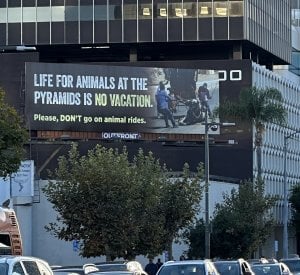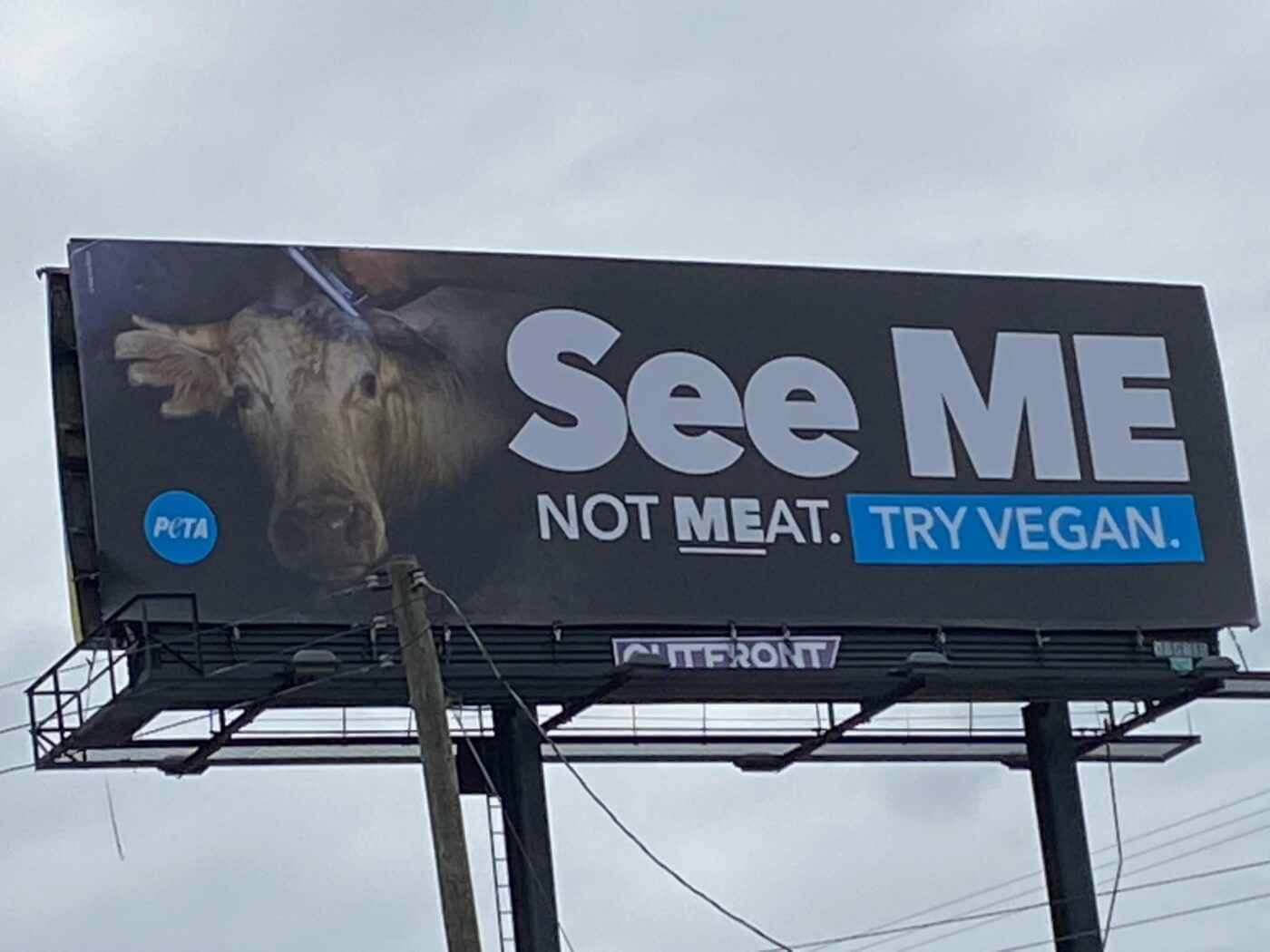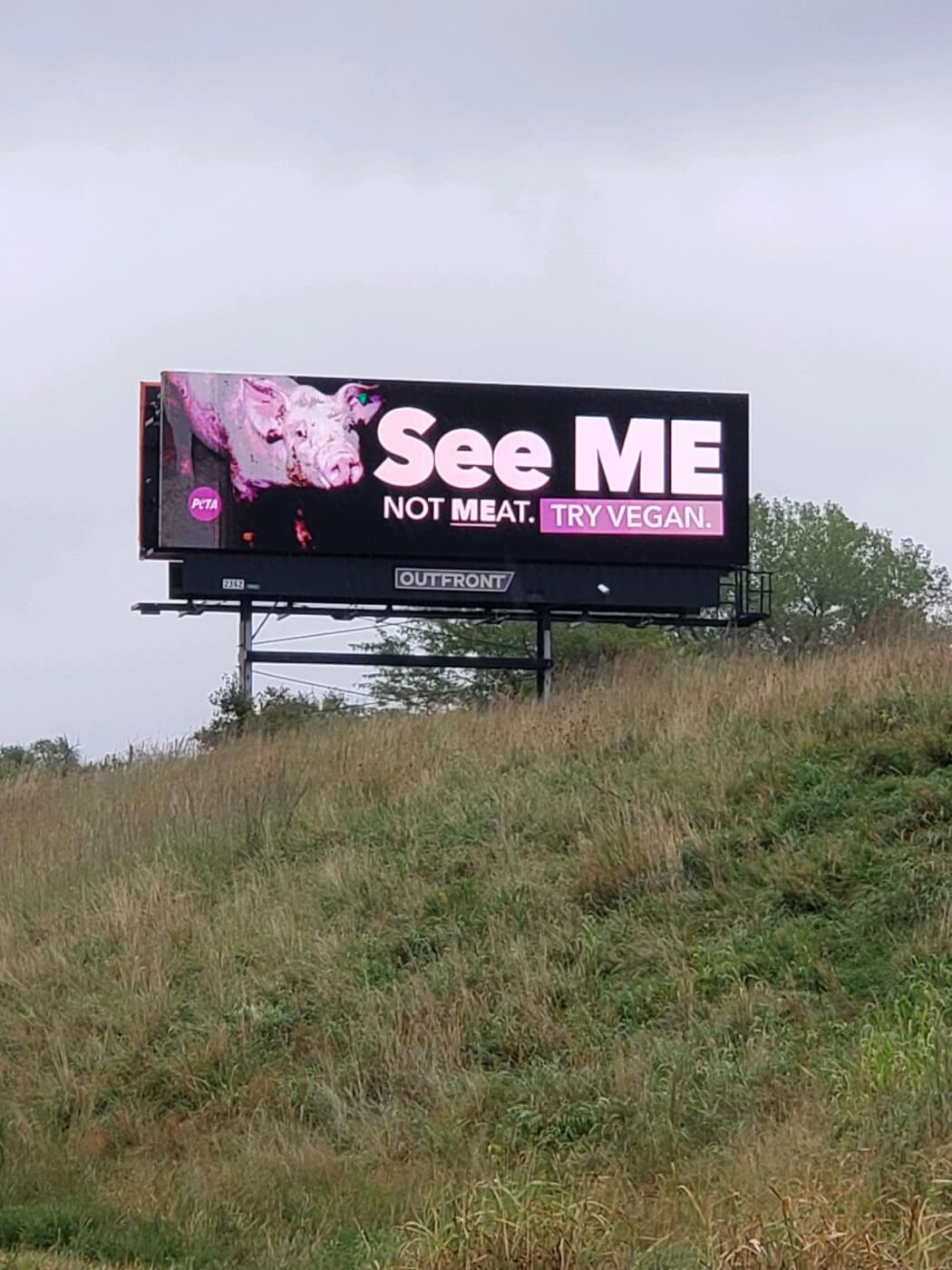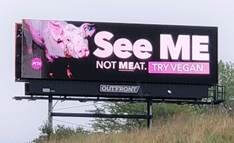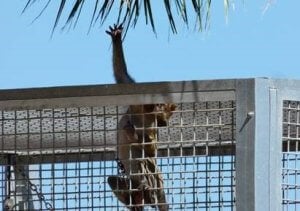Because horses and camels used for tourist rides at the Giza pyramids are frequently beaten, bound, and left with bloody wounds—and the Egyptian government has reneged on its promise and failed to follow through as it said it would to ban the abusive rides—PETA has erected a new sky-high appeal just a stone’s throw from the Egyptian Consulate, urging tourists never to support this exploitative industry.
The action follows newly released footage from PETA Asia showing that camels used for rides and photo ops are hit in the face and on the testicles and left with bloody wounds at Egypt’s notorious Birqash Camel Market, including one camel who was tied to the back of a truck and dragged through the street. Another video shows a horse at Giza collapsing while pulling a carriage and being beaten until she manages to stand up again, while still other videos show horses with open sores and severe, untreated injuries forced to wait for the next paying customer in the blistering heat without shade or water and trying to subsist by eating trash.
“Exhausted horses and camels are beaten bloody every day beside the pyramids so that their handlers can wring a few more dollars out of tourists,” says PETA Asia Senior Vice President Jason Baker. “PETA is calling on the Egyptian government to live up to its promise and switch to eco-friendly electric carts and urges everyone never to ride an animal at any tourist attraction.”
PETA Asia has shared multiple videos of animal abuse with Egypt’s Ministry of Tourism and Antiquities. The ministry previously pledged to ban the use of horses and other animals at tourist sites and replace them with electric carts but has failed to provide a definite date for implementing the ban.
PETA’s appeal is located at 6150 Wilshire Blvd., just up the road from the Egyptian Consulate, and will be in place through October 9.
PETA—whose motto reads, in part, that “animals are not ours to use for entertainment or abuse in any other way”—opposes speciesism, a human-supremacist worldview. For more information, please visit PETA.org, listen to The PETA Podcast, or follow the group on X (formerly Twitter), Facebook, or Instagram.
The post Beaten, Abused Horse Looms Over Egyptian Consulate: PETA Releases New Video of Abuse appeared first on PETA.

